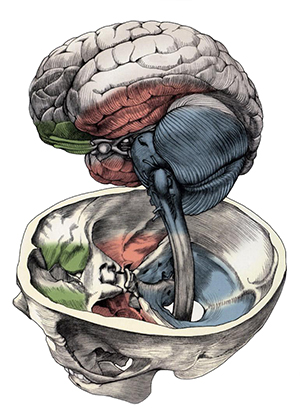Evaluation & Treatment
Neurology Consultations
Out-patient, Office Consultations
- Dr. Athni is available for detailed Neurologic Consultations in our office.
- During your initial visit, we will do a detailed Neurologial history and physical exam.
- If a firm diagnosis can be made during the initial visit, we will set forth a treatment plan.
- If additional testing is necessary, we will delineate, schedule and follow thru with a diagnostic testing plan, after which a follow-up visit will be scheduled to discuss the results of the diagnostic tests.
- After the results are discussed, we will set forth a treatment plan as medically appropriate.
- Most diagnostic testing is done in “steps”, starting with the least invasive and slowly progressing to more invasive testing as the need arises.
In-patient, Hospital Consultations
- We are affiliated with the Piedmont Hospital Health System
- For in-patient evaluations, we expect you to be admitted by a Hospitalist, your Internist or your Family Practitioner
- If a neurological problem arises which cannot be handled by your admitting physician, he or she will call the Neuro-Hospitalist for a formal hospital consultation
Infusion Therapy
What is “Infusion Therapy”?
- Infusions are medications that are administered via an IV. These medications are dissolved in an IV bag, and delivered thru a peripheral vein or a central port.
When is infusion therapy used?
- Infusion medications are used to treat various illnesses, including Migraine Headaches, Multiple Sclerosis, Neuropathy, Myasthenia Gravis – to name a few.
- Speak with Dr. Athni about your treatment options, including infusion therapy.
Where are the infusions given?
- We have an Infusion Suite within our facility, with reclining lounge chairs for comfort and ease.
- Our infusion suite is available for infusions during normal business hours.
Who administers the infusions?
- We have 2 infusions nurses – Tracy and Lauren – who are certified in infusion nursing care.
- They will follow the medical directions prescribed by Dr. Athni, including any pre-infusion meds, post-infusion meds, as well as various medications used to treat any infusion related side effects.
VNS – Vagal Nerve Stimulation
What is Vagal Nerve Stimulation?
- Vagal Nerve Stimulation, or VNS, is a therapeutic option available for patients with uncontrolled seizures.
- The procedure is an “adjunct” to seizure medications, not a full replacement for medications.
What is involved with “VNS”?
- If you have a seizure disorder, which is hard to control with medications, then Dr. Athni will assess whether you might qualify for VNS.
- If you are deemed a good candidate for VNS, you will be referred to a local surgeon for VNS implantation.
- The surgeon will implant a small electrode in your neck, as well as a “power generator” in your left chest.
- You will then return to Dr. Athni for programming and management of your VNS.
How is VNS programmed?
- Approximately 1 week after your VNS surgery, Dr. Athni will connect a hand-held computer to your VNS.
- Using the hand-held computer, the VNS is digitally programmed, in an attempt to stop your seizures.
- The programming is done very slowly and methodically. It can take 6-8 weeks to complete the initial programming, requiring weekly visits to our office.
- Additional programming changes will be made beyond the 6-8 weeks as medically necessary.
DBS – Deep Brain Stimulation
What is Deep Brain Stimulation?
- Deep Brain Stimulation, or DBS, is a treatment option used for various types of Movement Disorders.
- The procedure has been very successfully used in patients with Parkinson’s Disease or Essential Tremors.
- The procedure is an “adjunct” to medications, not a full replacement for medications.
What is involved with DBS?
- Dr. Athni will assess you and determine whether you are a good candidate for DBS.
- If you medically qualify for the procedure, you will be referred to a Neurosurgeon for DBS implantation.
- You are fully awake during the surgical procedure.
- The Neurosurgeon will drill a small hole in your skull, and insert an “electrode” into your brain.
- The Neurosurgeon will also implant a “power generator” in your chest.
- You will then return to Dr. Athni for detailed “programming and management” of your DBS.
How is the DBS programmed?
- After you have the DBS inmplanted, Dr. Athni will connect your “generator” to a hand held computer.
- He will then program the leads in the brain to activate certain parts of the brain, in an attempt to reduce and control your movement disorder.
- The full programming may take 3-4 months.
Botox – Botulinum Toxin Injections
What is “Botox”?
- Botulinum toxin (B. toxin) is a “neuro toxin” which paralyzes any muscle it comes in contact with.
- When used as a medication, B. toxin is very powerful, and must be given by specially trained physicians.
- There are a few different companies which manufacture B. toxin, each under different brand names. The most common variety of B. toxin is “Botox”, manufactured by Allergan.
What is Botox used for?
- There are numerous diseases which are associated with “muscle spasms” or “stiffness”. For such conditions, B. toxin is an appropriate medication to “relax” those muscles.
What is the difference between “Cosmetic” and “Therapeutic” Botox?
- The drug is the same, but the use is vastly different.
- With Cosmetic Botox, the drug is injected into various muscles (typically the facial muscles) to eliminate wrinkles.
- Insurance does NOT pay for Cosmetic Botox.
- With Therapeutic Botox, the drug is injected into various muscles of the face, arms, legs, or back to alleviate a problem caused by a specific medical condition.
- Usually, insurance companies will pay for therapeutic Botox treatments.
How much does Botox cost?
- For Cosmetic Botox, it can cost around $13 to $15 per unit, and it is NOT covered by insurance plans.
- A “typical” Cosmetic Botox session can involve injecting 30-100 units, depending on what we are trying to achieve.
- For Therapeutic Botox, if your insurance approves the treatment, your cost will typically be just your co-pay.
- Please speak with our financial / insurance department to get further information about your specific insurance plan.
Office Hours
Mon: 8:30 am to 4:30 pm
Tues: 8:30 am to 4:30 pm
Wed: 8:30 am to 4:30 pm
Thurs: 8:30 am to 4:30 pm
Fri: Closed
Sat: Closed
Sun: Closed
Holidays: Closed
Click here to access our office Digital Business Card.


